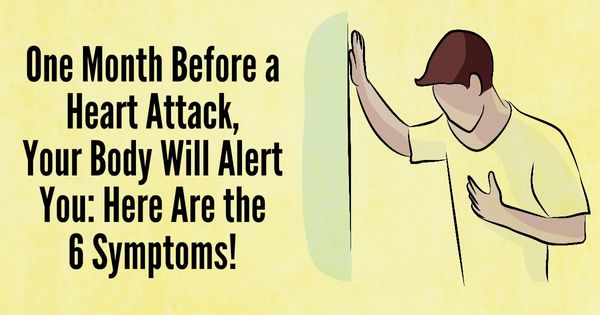Protecting Your Heart Health: Key Warning Signs to Watch For
Maintaining heart health becomes increasingly important as you age. Adopting simple lifestyle changes, such as eating a balanced diet and managing stress, can significantly support your cardiovascular well-being. Your body may provide early warning signs up to a month before a heart attack. Recognizing these symptoms and acting promptly can be lifesaving. Here are six critical signs to be aware of:
- Shortness of Breath
Difficulty breathing or feeling unable to catch your breath may indicate that your heart isn’t receiving enough oxygen. This is a serious symptom—contact your doctor immediately. - Cold and Flu-Like Symptoms
Some people experience symptoms resembling a cold or flu before a heart attack. Stay alert if these symptoms persist or feel unusual, and seek medical advice. - Chest Pressure or Discomfort
A sensation of pressure, tightness, or pain in your chest could signal an impending heart issue. Don’t ignore this—consult a healthcare professional promptly. - Unexplained Weakness
Narrowed arteries can restrict blood flow, leading to muscle weakness or persistent fatigue. If you feel unusually weak or tired, discuss it with your doctor to check for heart-related concerns. - Cold Sweats and Dizziness
Poor circulation can reduce blood flow to the brain, causing cold sweats or dizziness. These symptoms warrant immediate attention, as they may indicate a heart problem. - Persistent Drowsiness
Ongoing tiredness or drowsiness, even after adequate rest, may suggest reduced blood flow to the heart. If this persists for days, seek medical evaluation promptly.
Why It Matters
Acting quickly on these warning signs can significantly reduce your risk of a heart attack. Listening to your body and addressing symptoms early can protect your heart and improve your overall health.
Frequently Asked Questions (FAQs)
- Can these symptoms occur without leading to a heart attack?
Yes, these symptoms can sometimes be caused by other conditions, such as anxiety, respiratory issues, or fatigue. However, because they may indicate a heart problem, it’s critical to consult a doctor for an accurate diagnosis. - How soon should I seek medical help if I notice these symptoms?
If you experience any of these symptoms, especially chest pressure, shortness of breath, or persistent dizziness, seek medical attention immediately. For milder symptoms like fatigue or flu-like signs, contact your doctor within a day or two if they persist. - Are these symptoms the same for men and women?
While these symptoms can occur in both men and women, women may experience atypical signs like nausea, jaw pain, or upper back discomfort. Always be vigilant and consult a doctor if something feels off. - Can lifestyle changes really prevent a heart attack?
Yes, adopting a heart-healthy lifestyle—eating a balanced diet, exercising regularly, managing stress, and avoiding smoking—can significantly lower your risk of heart disease and heart attacks. - What should I do if I’m unsure whether my symptoms are serious?
When in doubt, err on the side of caution. Contact your healthcare provider or visit an urgent care facility to rule out serious conditions. Early action can be lifesaving.
Heart Health Tips
- Eat a Heart-Healthy Diet
Focus on fruits, vegetables, whole grains, lean proteins, and healthy fats like those found in nuts and fish. Limit processed foods, saturated fats, and added sugars. - Stay Active
Aim for at least 150 minutes of moderate exercise per week, such as brisk walking, swimming, or cycling, to strengthen your heart and improve circulation. - Manage Stress
Practice stress-reducing techniques like meditation, deep breathing, or yoga to keep your heart and mind healthy. - Monitor Your Health
Regularly check your blood pressure, cholesterol, and blood sugar levels. Early detection of abnormalities can help prevent heart issues. - Quit Smoking and Limit Alcohol
Smoking and excessive alcohol consumption can damage your heart. Seek support to quit smoking and keep alcohol intake moderate. - Know Your Family History
A family history of heart disease increases your risk. Share this information with your doctor to tailor preventive measures.
By staying proactive and attentive to your body’s signals, you can take meaningful steps to protect your heart and live a healthier life.

